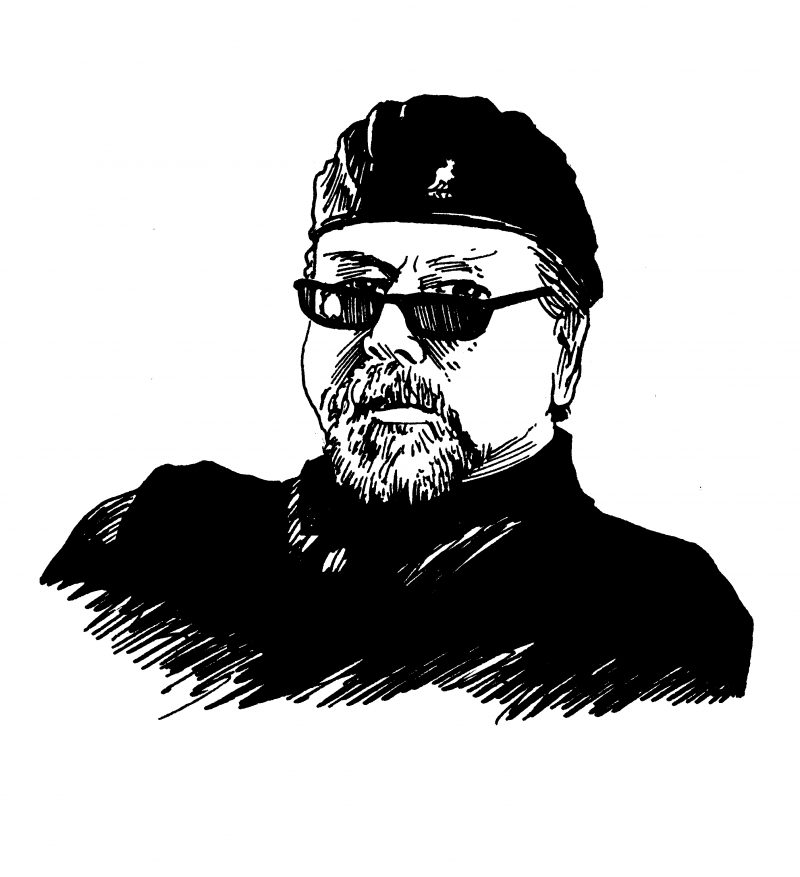In Manhattan’s Garment District, the fumes of idling trucks and deliverymen’s cigarettes smudge the edges of everything. The sidewalk reflection in the plateglass window blends into strips of sequins, boxes of Rit, feathers, and cloth swatches on the other side. Here you could design a disguise; here you could be anyone.
A brown skuzzy lobby that smells like a roller rink shares an address with a fabric wholesaler, and upstairs there is a honeycomb of offices belonging to a drag-queen costumer, a modeling agency, a fashion PR company, and Frank Ahearn, a forty-nine-year-old man who helps people disappear. Ahearn resembles a Hells Angel. Faded tattoos spot his thick forearms, and he keeps his long gray hair in a ponytail. The word freedom is tattooed across his broad shoulders, and, with little provocation, he will remove his shirt to flaunt it in TV interviews. In person, he is much more relaxed than in our paranoid exchanges (he blew off interview requests for six months because he thought I was going to serve him papers) and warmer than he looks in the menacing author photo on his book How to Disappear, in which he is lit from the side like an aged Marlon Brando in tinted glasses. Ahearn’s book is a how-to for people who want to “vanish without a trace,” and it bills him as “the world’s top expert” on the subject. Despite the book’s large print and Ahearn’s liberal deployment of the word fuck as noun, adjective, and verb, he has written an exhaustive guide to disappearing in the twenty-first century, and it sells over 150 copies per week online. Disappearing is on the minds of many.
Talk is Ahearn’s gift, and he talks big and fast, in a squeaky voice that belies his hulking size. He is an aesthete in the art of high bullshit. Not the kind of bullshit that is necessarily lying, but the kind involved in knowing how to seduce anyone, anywhere. He endears himself to you by telling a million stories—from growing up on the city’s mean streets to scoring criminal records from a pay phone—and by inserting your name into one of the million hypothetical scenarios he constructs to illustrate his dark work. Ahearn’s speech is prone to Bronx inflection, and he begins many sentences with the phrase It’s fahked up becowse… He uses profanity in a way that borders on Zen poetry: “Some days, life is a shitty piece of shit.” And even though he doesn’t believe in politicians’ platitudes (“I think the government blows, in plain English. They’re a bunch of lying mothafahkas”), his is an American story elevated to mythology, replete with...
You have reached your article limit
Sign up for a digital subscription and continue reading all new issues, plus our entire archives, for just $1.50/month.
Already a subscriber? Sign in





